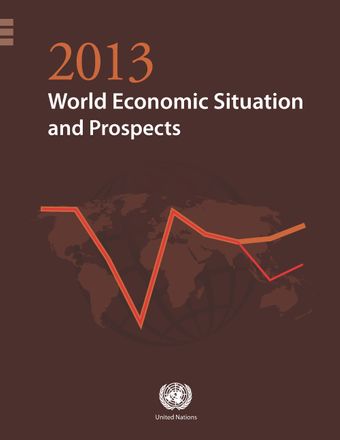Regional developments and outlook

- Author: United Nations Department of Economic and Social Affairs
- Main Title: World Economic Situation and Prospects 2013 , pp 101-139
- Publication Date: February 2013
- DOI: https://doi.org/10.18356/71fd8a41-en
- Language: English
The economies of the developed countries still face strong headwinds in their struggle to return to sustained growth. The Great Recession left a host of troublesome legacies: continued deleveraging by households and firms, which is holding back consumption and investment demand; still fragile banking sectors whose lending to the private sector is not yet normalized; depressed housing markets that put additional strains on the banking system and hold back consumer spending and construction investment; and substantially deteriorated fiscal balances and rising public indebtedness that Governments are trying to redress through fiscal austerity, but which, in already depressed economic situations, is further pushing up unemployment rates and slowing economic recovery. Unemployment rates remain high in most developed economies and in some cases have reached disturbing levels, affecting a quarter or more of the work force. A large share of workers remains without having had a job for a year or longer, a major social concern that threatens to lower long-run economic growth. Slower growth in emerging market economies, which had proved a strong support to global growth since the end of the Great Recession, started to compound these difficulties in the course of 2012. Many of these factors have also led to a tremendous drop in confidence by both firms and consumers, leading to postponed investment and consumption decisions.
© United Nations
ISBN (PDF):
9789210559119
Book DOI:
https://doi.org/10.18356/5b4a6ba6-en
Related Subject(s):
Economic and Social Development
Sustainable Development Goals:
-
From This Site
/content/books/9789210559119c007dcterms_title,dcterms_subject,pub_keyword-contentType:Journal -contentType:Contributor -contentType:Concept -contentType:Institution105
/content/books/9789210559119c007
dcterms_title,dcterms_subject,pub_keyword
-contentType:Journal -contentType:Contributor -contentType:Concept -contentType:Institution
10
5

